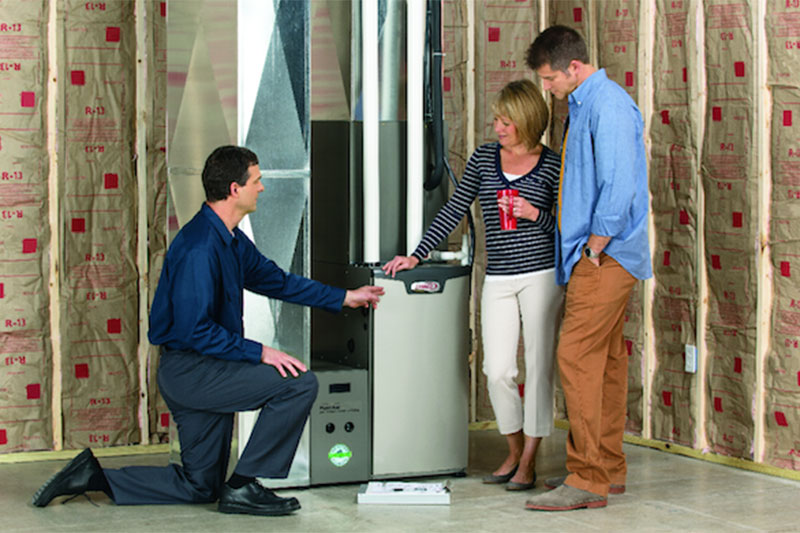
Natural gas furnaces need adequate space and airflow to run right.
Your furnace can get too hot if it doesn’t have enough space. It also makes it challenging for our specialists to accomplish furnace repair.
Regular furnace maintenance is crucial to keep your equipment working well. An annually serviced furnace may run more efficiently, which could reduce your energy expenses.
Related: How Does Furnace Maintenance Impact the Energy Efficiency of Your Home?
Maintenance often helps us notice troubles before they become expensive. This could help lower future repair costs and potentially prolong the life of your furnace.
So how much clearance should your system really have?
How Much Space Will a Furnace Take Up?
If you’re updating your basement or enclosing your furnace room, you should research manufacturer instructions and Crystal and Twin Cities laws for clearance guidelines.
As a general suggestion, your heater should be 30 inches away from furnace room walls on all sides. This allows our service technicians to comfortably replace it.
You also need to check the space has enough airflow and ventilation, especially if you have an aging furnace with a metal flue.
Related: Furnace Service or Furnace Replacement: What to Consider
This type of furnace needs combustion air from the surrounding space. If there’s insufficient air, dangerous gas fumes and poisonous carbon monoxide could flow back into your home.
If your furnace is positioned in a little room with a gas water heater, you may need to add more openings. This could include a fully louvered door or vents in the walls.
You don’t need to think about airflow and ventilation as much if you have a newer, high-efficiency furnace with PVC piping. Your unit uses one pipe as an exhaust vent and the other to draw in air.
Keep Combustible Materials Away from Your Furnace
Although furnace rooms double as laundry and storage space, you should keep yours free of things that could be fire hazards.
This includes:
- Clotheslines
- Cleaning or laundry products
- Gasoline, paint or paint thinner
- Rags and papers
- Wood scraps and sawdust
- Used filters
If you have a cat, situate your litter box somewhere else. Cat urine contains ammonia, which could deteriorate your furnace’s heat exchanger. Plus, the furnace could circulate the stinky odors around your home.
You should also frequently vacuum near your furnace to stop dust from accumulating.
Related: Is it Time for Furnace Service or Replacement?
Request Expert Furnace Service
Whether you need furnace replacement or regular maintenance in Crystal and Twin Cities, GV Heating & Air can expertly take care of your needs. Our highly trained technicians can repair any HVAC model or brand.
Call us at 763-535-2000 or use our online scheduler to set up an appointment right away.



